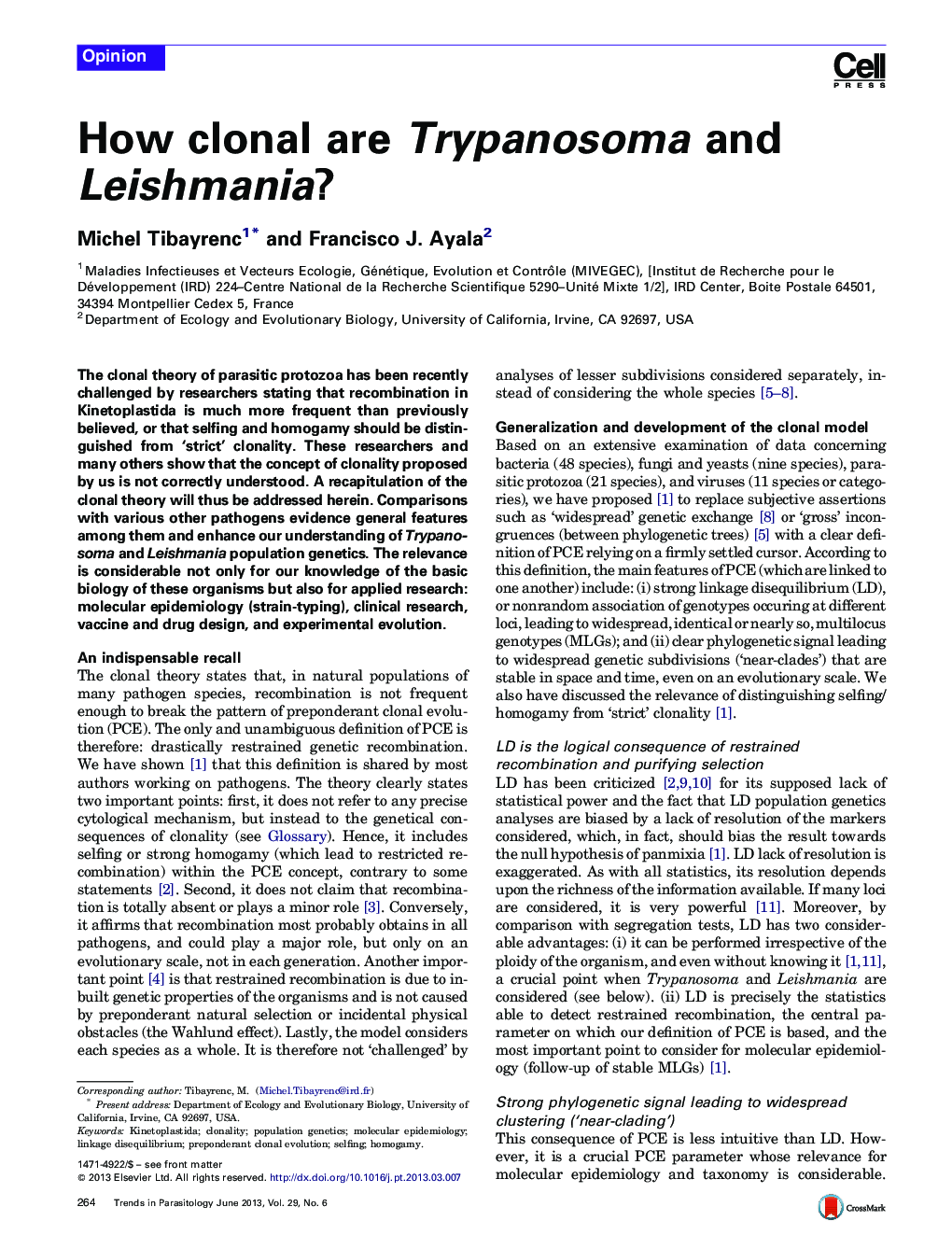| Article ID | Journal | Published Year | Pages | File Type |
|---|---|---|---|---|
| 3423175 | Trends in Parasitology | 2013 | 6 Pages |
•We update the concept of preponderant clonal evolution (PCE) in micropathogens.•The main feature of PCE is restrained recombination.•PCE causes strong linkage disequilibrium and stable ‘near-clades’.•Micropathogen PCE could be either ancestral or the result of convergent evolution.
The clonal theory of parasitic protozoa has been recently challenged by researchers stating that recombination in Kinetoplastida is much more frequent than previously believed, or that selfing and homogamy should be distinguished from ‘strict’ clonality. These researchers and many others show that the concept of clonality proposed by us is not correctly understood. A recapitulation of the clonal theory will thus be addressed herein. Comparisons with various other pathogens evidence general features among them and enhance our understanding of Trypanosoma and Leishmania population genetics. The relevance is considerable not only for our knowledge of the basic biology of these organisms but also for applied research: molecular epidemiology (strain-typing), clinical research, vaccine and drug design, and experimental evolution.
